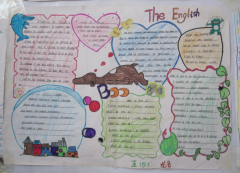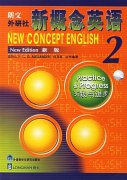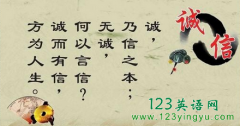高中语法大全 第二部分(2)
编辑:admin
Which girls do you like best?
你喜欢哪几个姑娘?
What girls do you like best?
你喜欢什么样的姑娘?
说明2:
Whom是who的宾格,在书面语中,它作动词宾语或介词宾语,在口语中作宾语时,可用who代替,但在介词后只能用whom, 例如:
Who(m) did you meet on the street?
你在街上遇到了谁?(作动词宾语)
Who(m) are you taking the book to?
你要把这书带给谁?(作介词宾语,置句首)
To whom did you speak on the campus?
你在校园里和谁讲话了?(作介词宾语,置介词 后,不能用who取代。)
说明3:
疑问代词用于对介词宾语提问时,过去的文体中介词和疑问代词通常一起放在句首,现代英语中,疑问代词在句首,介词在句未,例如:
For what do most people live and work?
大部分人生活和工作的目的是什么?(旧文体)
What are you looking for?
你在找什么?(现代英语)
说明4:
疑问代词还可引导名词性从句,例如:
I can't make out what he is driving at.
我不知道他用意何在。
Can you tell me whose is the blue shirt on the bed?
你能告诉我床上的蓝衬衣是谁的吗?
Much of what you say I agree with, but I cannot go all the way with you.
你说的我大部分同意,但并不完全赞同。
返回顶端〉〉
2.11 关系代词
1) 关系代词用来引导定语从句。它代表先行词,同时在从句中作一定的句子成分,例如:The girl to whom I spoke is my cousin. 跟我讲话的姑娘是我表妹。(该句中whom既代表先行词the girl,又在从句中作介词to的宾语。)
2) 关系代词有主格,宾格和属格之分,并有指人与指物之分。在限定性定语从句中,that 可指人也可指物,见下:
限定性 非限定性 限定性
指 人 指 物 指人或指物
主 格 who which that
宾 格 whom that that
属 格 whose of which/whose of which/whose
例如:
This is the pencil whose point is broken.
这就是那个折了尖的铅笔。
(whose 指物,在限定性定语从句中作定语)
He came back for the book which he had forgotten. 他回来取他丢下的书。
(which指物,在限定性定语从句中作宾语,可以省略)
3) 关系代词which的先行词可以是一个句子,例如:
He said he saw me there, which was a lie.
他说在那儿看到了我,纯属谎言。
说明: 关系代词that在从句中作宾语或表语时可省略, 例如:
I've forgotten much of the Latin I once knew.
我过去懂拉丁语,现在大都忘了。
He's changed. He's not the man he was.
他变化很大,已不是过去的他了。
返回顶端〉〉
2.12 every, no, all, both,...
1)不定代词有
all , both, every, each, either, neither, more, little, few, much, many, another, other, some, any , one, no 以及some, something, anything, everything, somebody, someone, anybody, anyone, nothing , nobody, no one, none, everybody, everyone.等。
2) 不定代词的功能与用法
a. 除every 和no外不定代词既可用作名词,也可用作形容词。every和no在句中只能作定语。
I have no idea about it.
b. all 都,指三者以上。
all 的主谓一致:all的单复数由它所修饰或指代的名词的单复数决定。
All goes well. 一切进展得很好。
all 通常不与可数名词单数连用,如:不说 all the book,而说 the whole book。
但all可与表时间的可数名词单数连用,如 all day,all night,all the year; 但习惯上不说 all hour,all century。
all还可以与一些特殊的单数名词连用,如 all China, all the city, all my life, all the way
3) both 都,指两者。
a. both 与复数动词连用,但 both… and…可与单数名词连用。
b. both, all 都可作同位语,其位置在行为动词前, be 动词之后。如果助动词或情态动词后面的实义动词省 去,则位于助动词或情态动词之前。
Who can speak Japanese? We both (all) can.
4) neither 两者都不








